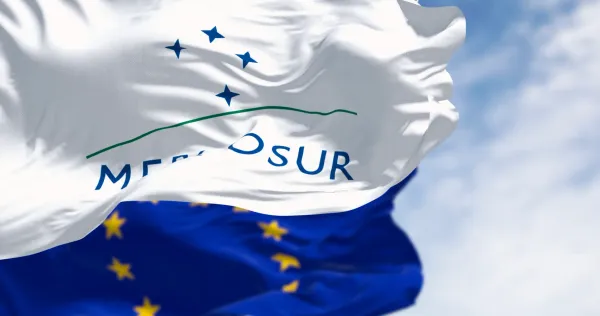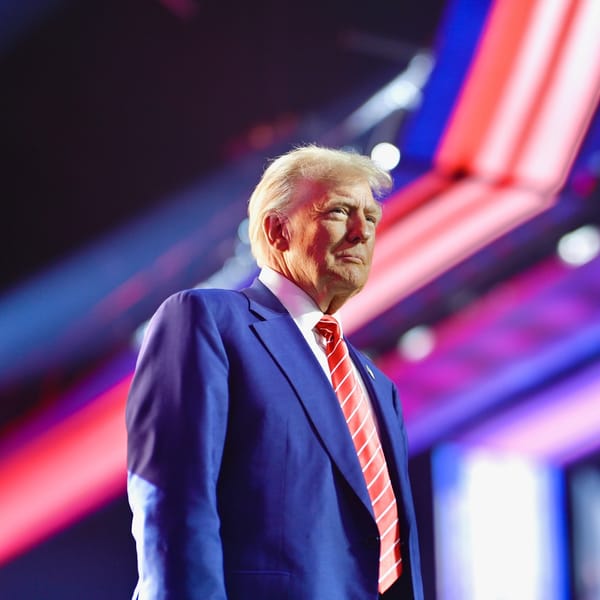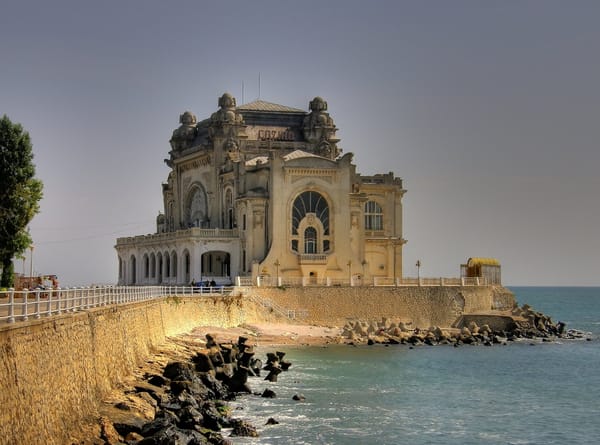
For industrialised, export-oriented CEE countries, the EU–Mercosur agreement is incrementally beneficial
Only Poland has strong structural reasons for concern, while Hungary, Czechia and Slovakia stand to benefit from expanded industrial exports.
A collection of 31 posts

Only Poland has strong structural reasons for concern, while Hungary, Czechia and Slovakia stand to benefit from expanded industrial exports.

European Commission (EC) President Ursula von der Leyen agreed a new trade deal with US President Donald Trump at Turnberry, south-west Scotland, on 27 July, setting a ceiling of 15% on tariffs for EU goods and averting a wider transatlantic escalation.

US President Donald Trump’s inauguration ceremony on Monday, 20 January, broke with tradition and extended invitations to political leaders. However, footage of former Poland prime minister Mateusz Morawiecki attempting to cross a barricade into the ceremony site by showing US National Guard members his Wikipedia page, which went viral

Romania has approved “technical-economic indicators” for an over RON 750mn (EUR 150.8mn) rail construction project at the country’s largest port Constanta, east Romania, scheduled for completion in two years. The Central and Eastern Europe (CEE) country has plans to transform Constanta into a key Black Sea logistics hub,

Natural gas shipments should continue to flowing to Moldova, as Gazprom has given Chisinau two more days to pay off what the country owes the giant Russian gas supplier. Earlier, Gazprom had threatened to close off the taps because of Moldova’s debt of EUR 74 million, an amount covering

Taiwan has opened what it calls its Representative Office in Lithuania, defying China’s attempts to dissuade Vilnius from allowing what could be considered a de facto embassy for the self-governed island. Taiwan’s foreign ministry says that via the opening of the office, Taipei and Vilnius will deepen economic

Belarus will limit the pumping of oil to Poland through its section of the Druzhba pipeline for three days from Thursday, Transneft official Igor Demin announced yesterday. Gomeltransneft, the Belarusian subsidiary of Russia’s Transneft, is carrying out “unscheduled repairs”, Demin said, adding that its planned transit target for November

At the first meeting of the newly founded EU-US Trade and Technology Council (TTC) the EU and the US governments have set the stage for closer technological cooperation and a sharing of progressive trade rules. The aim of TTC is two-fold: simultaneously support domestic industries and achieve a higher level

Taiwan has signaled its readiness to do business with Europe: the government in Taipei is eager to begin trade talks with the European Union, which has recently announced plans to become more active in Southeast Asia. Such negotiations between Taiwan and the EU have been in the works since 2015,

If you’re traveling to Dubrovnik, Croatia’s southern Adriatic resort town, you no longer need to transit through Bosnia and Hercegovina: the two parts of Croatian territory are now united by a spectacular, 2.5 kilometer-long bridge, linking the mainland with the Peljesac peninsula. For the first time in

Inflation may pose a real threat for countries in Central & Eastern Europe (CEE), specifically for Poland and Hungary, which are facing post-pandemic economic pressures. That’s why their economies do not appear as shiny as they used to. Hungary saw a recent inflation rate of 5.1%, while Poland’

The future of natural gas and how it is funded by the EU are deepening the divide between eastern and western Europe. Countries in Central & Eastern Europe (CEE) like the Czech Republic, Poland, Hungary, Bulgaria and Romania continue to see natural gas as a key energy source and would

In the final days of the Portuguese EU presidency, transport ministers agreed with members of the European Parliament revisions to Eurovignette, the rules on road charging to reduce emissions of polluting gases and infrastructure congestion. Portugal’s minister of infrastructure and housing, Pedro Nuno Santos, stated that the agreement “with

Romania’s economy will grow by 6% this year, fully reversing the 3.9% contraction caused by the COVID-19 pandemic last year, according to an updated Global Economic Prospects published by the World Bank. The global outlook remains subject to significant downside risks, including the possibility of additional COVID-19 waves

As in most countries in Central & Eastern Europe (CEE), the competitiveness of the Hungarian economy heavily depends on car production. In recent years, however, the sector has had to face challenges like the potentially growing market of electric cars, as well as the COVID-19 pandemic. New European climate and